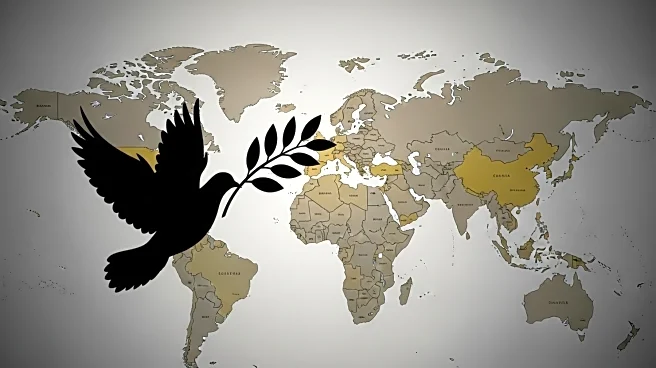What's Happening?
Iran's President Masoud Pezeshkian engaged in a significant interview with NBC Nightly News anchor Tom Llamas during his visit to the United Nations. The discussion centered around recent U.S. military actions targeting Iran's nuclear facilities and the alarming reports of missing uranium within the country. President Pezeshkian addressed these critical issues while also considering the possibility of a meeting with President Trump. The interview was conducted with the assistance of a government interpreter, and NBC News ensured the accuracy of the translation. This dialogue comes at a time of heightened tensions between the U.S. and Iran, with both nations navigating complex diplomatic and security challenges.
Why It's Important?
The interview with President Pezeshkian is crucial as it sheds light on the ongoing geopolitical tensions between the U.S. and Iran, particularly concerning nuclear proliferation and regional security. The U.S. strikes on Iran's nuclear facilities underscore the persistent threat perceived by the U.S. regarding Iran's nuclear ambitions. The mention of missing uranium raises further concerns about nuclear security and potential proliferation risks. These developments have significant implications for international relations, potentially affecting global security dynamics and influencing U.S. foreign policy decisions. Stakeholders, including international organizations and neighboring countries, are closely monitoring these interactions, as they could impact regional stability and diplomatic relations.
What's Next?
The potential meeting between President Pezeshkian and President Trump could mark a pivotal moment in U.S.-Iran relations, offering a platform for dialogue and negotiation. The international community will be watching closely for any diplomatic breakthroughs or escalations. Additionally, the issue of missing uranium may prompt further investigations and international scrutiny, potentially involving the International Atomic Energy Agency (IAEA) to ensure compliance with nuclear agreements. The outcomes of these developments could influence future diplomatic strategies and security policies in the region.









